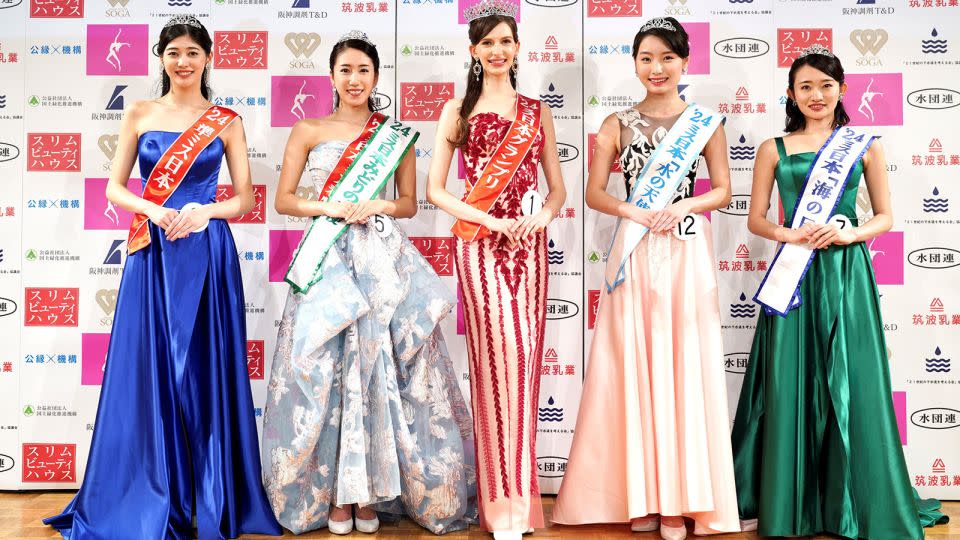Ukrainian-born Miss Japan relinquishes crown following alleged affair

The Ukrainian-born beauty queen who sparked a debate on cultural identity by being named Miss Japan has relinquished her title just two weeks after being crowned.
Karolina Shiino, the first person of predominantly European heritage ever to win the Miss Nippon contest (which takes its title from the country’s Japanese name), announced her decision to step down on Monday following local newspaper allegations of an affair with a married man.
In a statement posted to Instagram, the 26-year-old model apologized to the man’s family and those involved. She also announced that she was parting ways with her talent agency, writing: “I am truly sorry for causing a lot of trouble for many people and betraying those who have supported me.”
Organizers of the event meanwhile released a statement saying that Shiino had “requested to withdraw from the contest due to personal reasons.” Kaoru Wada, chair of the Miss Nippon Association, added that the 2024 title will remain “vacant.”
Despite being a naturalized citizen who speaks fluent Japanese and has lived in the country since she was 5 years old, Shiino’s pageant victory proved controversial, with some critics questioning whether someone without Japanese ethnicity could encapsulate the country’s beauty ideals.
“I wanted to be recognized as a Japanese person,” Shiino told CNN in Tokyo following her win last month. “I kept being told that I’m not Japanese, but I am absolutely Japanese, so I entered Miss Japan genuinely believing in myself. I was really happy to be recognized like this.”
The decision to pick a winner with European heritage prompted debate on social media, raising questions about what it means to be Japanese and the impact of Western beauty ideals in Asia.
“If the Miss Nippon contest is based on the concept of beauty, I personally wish that it would be based on standards of Japanese beauty,” historian Hiroe Yamashita wrote on X following Shiino’s victory. “But With Karolina Shiino’s appearance, an (ethnically) Japanese girl has no chance of winning under the modern values of beauty.”
Recounting to CNN the difficulties she faced growing up in Japan — an ethnically homogeneous country with comparatively low levels of immigration — Shiino called for a broader definition of who should be considered Japanese. “After all, we live in an era of diversity — where diversity is needed,” she said at the time.
CNN’s Junko Ogura, Alex Stambaugh and Leo Urushibata contributed to this report.
For more CNN news and newsletters create an account at CNN.com
